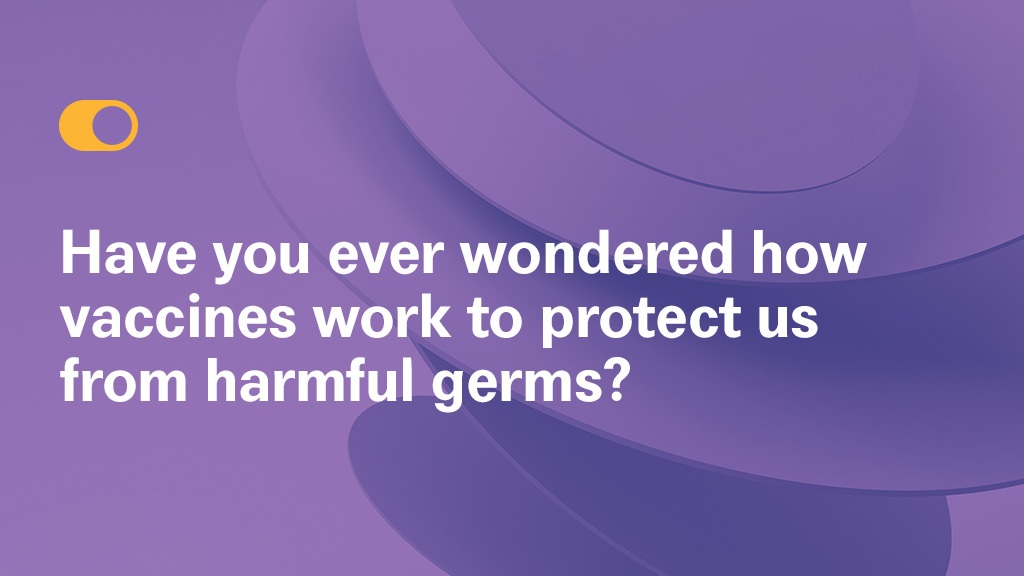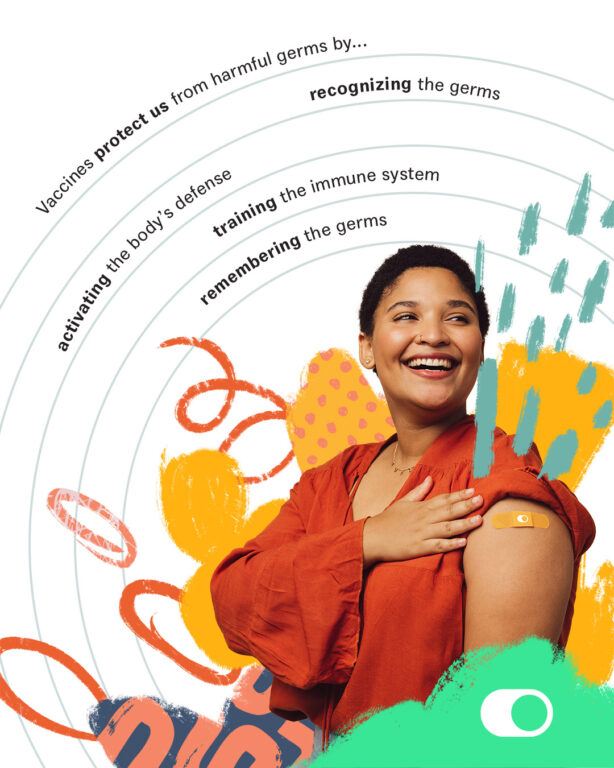
Have you ever wondered how vaccines work to protect us from harmful germs?
Vaccinations have been a cornerstone of preventative healthcare for decades, helping to prevent a wide range of infectious diseases. They work by activating our body’s natural defense mechanisms, teaching our immune system how to recognize and fight off harmful germs without actually getting sick. So, let’s dive in and discover the amazing world of vaccinations! Vaccinations work by helping our bodies fight off harmful germs that can make us sick.
 Here’s how they do it:
Here’s how they do it:
Recognizing the Germs
Vaccines contain tiny bits of the germs that cause diseases. These bits are weakened or made inactive, so they can’t make us sick. They are chosen carefully to train our immune system to recognize germs.
Activating the Body’s Defense
When we get a vaccine, our immune system gets activated. It’s like an army getting ready to fight. Our immune system starts making special proteins called antibodies that can find and destroy germs.
Training the Immune System
The vaccine helps our body learn how to fight germs without actually getting sick. It teaches our immune system how to make the right antibodies to attack germs and protect us.
Remembering the Germs
After we get a vaccine, our immune system creates a memory. It remembers how to fight specific germs. So, if we ever come across those germs again, our immune system can quickly recognize them and fight them off before they make us sick.
Staying Safe and Healthy
By getting vaccinated, we protect ourselves from getting sick or getting really sick if we do catch the germs. Vaccines also help protect others in our community, especially those who can’t get vaccinated, like babies or people with weak immune systems.
It’s Important to Note
Vaccines undergo rigorous testing and regulatory processes to ensure their safety and efficacy. They are continuously monitored for any potential side effects or adverse reactions. Vaccinations have been incredibly successful in preventing numerous diseases and have played a critical role in saving lives and reducing the burden of infectious illnesses worldwide.
Reach out to your Crossover provider to find out what vaccines you need and when to get them.
Vaccinations are a safe and effective way to protect yourself and those around you from harmful germs. Don’t wait until it’s too late, take action now to ensure your health and well-being. Contact your provider today to schedule a vaccination appointment.
Frequently Asked Questions
How do vaccines train the immune system?
Vaccines contain weakened or inactive parts of germs that allow the immune system to safely recognize and develop antibodies to fight those specific germs without causing illness.
Why can’t vaccines make you sick with the disease?
The components of germs in vaccines are weakened or inactive, so they cannot cause the full-blown disease. However, they are still able to trigger an immune response.
How do vaccines protect against future infections?
After getting vaccinated, the immune system builds a memory to quickly recognize and fight off those germs if exposed in the future before becoming sick.
What are vaccine schedules based on?
Vaccine schedules recommend when to get vaccinated based on factors like age, previous vaccinations, health conditions, travel plans, and risk of disease exposure.
How long does it take for vaccines to start working?
It typically takes a few weeks after vaccination for the body to build immunity. Protective antibody levels continue to increase and are usually highest a couple of months after vaccination.
How do vaccines get approved for use?
Vaccines go through years of rigorous testing, clinical trials with thousands of participants, and extensive review by scientific and regulatory bodies before being approved.